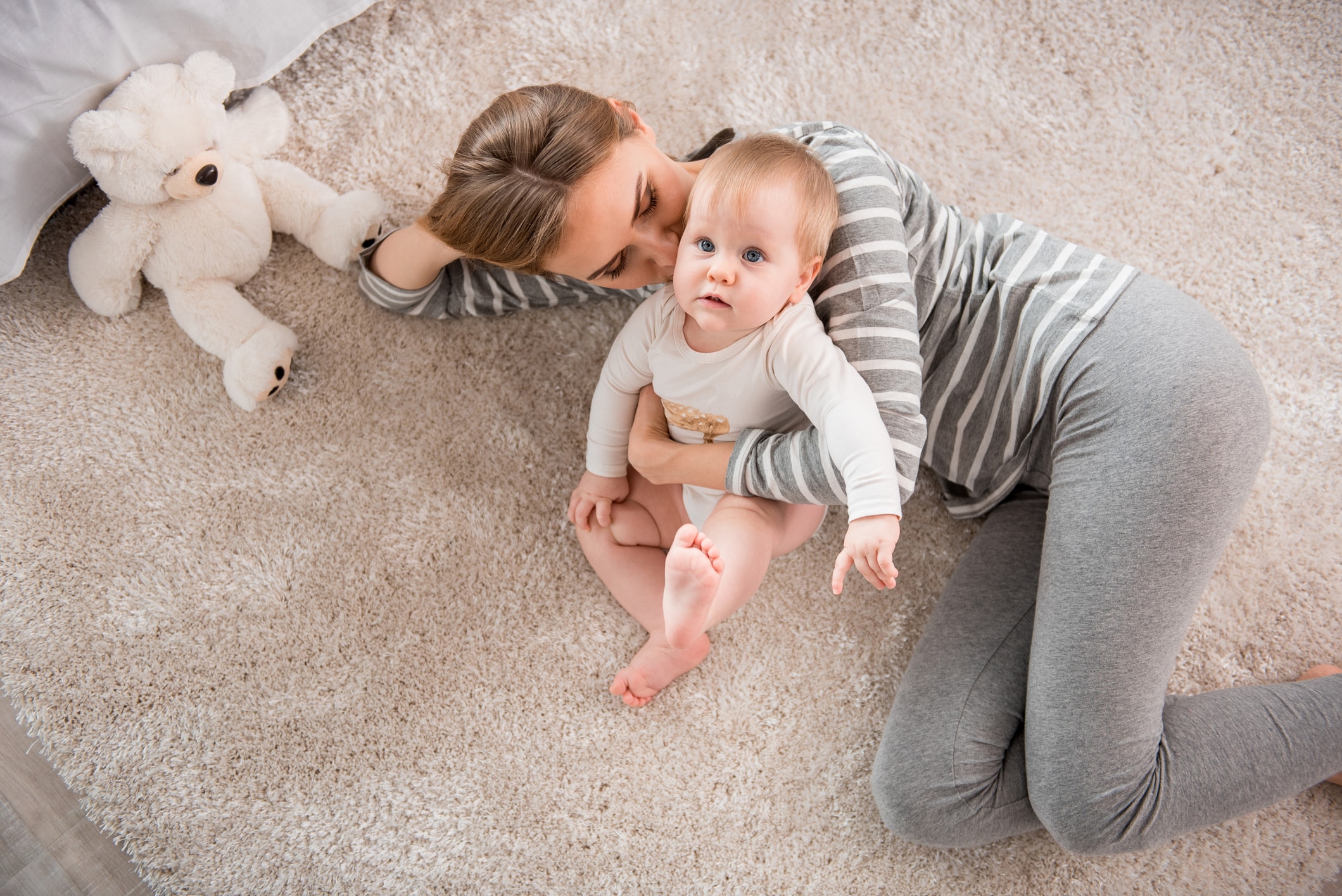In this article
The first time they use it in defiance, it’s kind of cute, but when your toddler’s favorite word is “no,” it’s undeniably frustrating.
While some kids say it more than others, the truth is, toddlers and “no” are an iconic duo. “This is part of recognizing they are their own person, separate from the parent and that they have agency, the power to express needs,” explains Tovah Klein, director emerita at the Barnard Center for Toddler Development and author of “How Toddlers Thrive.”
“’No’ gets people’s attention, especially parents,” Klein continues. “Repeating ‘no!’ is practice and fun.” It also bears noting that getting pushback will only lead to them doing it more.
Whether you’re at your wit’s end or simply want better ways to deal with this inevitable phase, here’s expert insight for dealing with toddlers who say “yes” to the word “no.”
Key takeaways
- Toddlers say “no” frequently because it gives them a sense of independence, mimics what they hear from adults and helps them test boundaries and cause-and-effect.
- While this phase can be frustrating, experts emphasize that it’s healthy — it teaches kids to assert themselves, set boundaries and build confidence.
- Parents can manage it by offering choices, holding firm but empathetic boundaries, avoiding unnecessary battles and supporting toddlers’ language and emotional development.
Why does my toddler say ‘no’ all the time?
Toddlers emulate what they see, and odds are they hear the word “no” pretty often, explains Dr. Fadiyla Dopwell, a board-certified developmental-behavioral pediatrician at Pediatrix Medical Group in Dallas.
“‘No’ is a word that toddlers frequently hear when being redirected from behaviors that may impact their safety or parents do not want to encourage,” notes Dopwell. “As such, some toddlers say ‘no’ because they’ve heard the word frequently from parents and caregivers.”
More than that, saying no gives toddlers a sense of autonomy and independence. “‘No’ is powerful!” notes Klein.
As your toddler learns to navigate the world, particularly through language, “no” is a way to be heard, Dopwell says. “Their ability to say ‘no’ allows them to express themselves and how they desire to experience the world.”
To that point, toddlers are curious and saying “no” — and seeing what happens — satiates that curiosity, notes Amy Zembriski, a pediatric speech pathologist in Fair Lawn, New Jersey.
“It can be incredibly frustrating at times, but when toddlers say ‘no,’ isn’t about being defiant or difficult, it’s about them exploring their autonomy and cause and effect.”
Is it bad if my toddler constantly says ‘no’?
Ironically, no! While it may feel like your child is belaboring every point with their incessant ‘no’s, there are benefits (and the tonnage will decrease).
“It’s good and important for children to learn to stand up for what they do and don’t want,” says Klein. “As much as we want our children to be kind or polite, we also want them to be able to stand up for themselves, and saying no is part of that.”
“Kids often overuse ‘no’ initially (because it is powerful),” Klein continues, “but they become more discriminating with it as they get older.”
And if you’re worried or annoyed that your child’s favorite word is “no,” take comfort in this: “Saying ‘no’ is actually one of the very first things I teach my clients and something I wanted to teach my child early on,” says Zembriski. “It helps children establish boundaries, advocate for themselves and can help protect kids against strangers and communicate with others when something doesn’t feel good to them.”
“Saying ‘no’ is actually one of the very first things I teach my clients and something I wanted to teach my child early on. It helps children establish boundaries, advocate for themselves and can help protect kids against strangers and communicate with others when something doesn’t feel good to them.”
— Amy Zembriski, a pediatric speech pathologist
What can I do about my toddler saying ‘no’ all the time?
Looking for tips in handling your child’s “no” era? Here’s what the experts recommend.
Give choices
Giving toddlers alternatives to “no” is a powerful way to give kids’ agency and reduce the daily “no” count.
“Ask questions that do not encourage a ‘yes’ or ‘no’ answer,” Zembriski advises, noting that options can be between what you ideally prefer and a potential compromise.
“For example, instead of asking your child if they’re ready to go to bed, you can ask ‘would you like to brush your teeth first or put on your pajamas?’” she explains. “This way, you’re not compromising on bedtime, but the toddler is given the autonomy to choose how they prepare for bed.”
In turn, you’ll foster “independence and decision-making skills while maintaining healthy boundaries in the parent-child dynamic.”
Hold firm boundaries, but be affirming
Some things aren’t a big deal, and kids should get to have a say (think: what they wear to school), but other things, like running in the street, are non-negotiables. In the latter case, Zembriski encourages parents to hold firm, but be kind and understanding at the same time.
Here’s an example response she gives when a child doesn’t want to stop what they’re doing: “I understand you don’t want to put on your shoes right now, and you don’t want to stop playing, but we have to go see grandma right now. I will help you, and the toys will be here for us when we come back.”
Will this work every time? No. But it’s still important, and later on in life, is when you’ll reap big rewards. “There are times when we say all the right things to our toddler, and they still may have that meltdown,” she acknowledges., “But continuing to model empathy and structure can help to teach emotional regulation, and the importance of boundaries, over time.”
Resist battles
In some cases, notes Klein, “even a ‘no’ may mean ‘yes.’” If you suspect that may be the case, such as in the refusal of dinner, Klein recommends keeping calm and carrying on.
“Just because a toddler says they don’t want dinner doesn’t mean you have to change course,” she says. “Refusing food is common, and you can still put the food on the table, and you may be surprised when the child asks to eat some a few minutes later.”
The key is “recognizing it but not overreacting,” she continues. “You can say, ‘’I heard you say “no,” but I’ll leave it here in case you want it later.’ There’s no need to battle with them.”
Try to have perspective
Klein encourages parents to “have a lot of humor and see it as toddlers practicing to have a voice.”
“Also, keep in mind, it is a developmental stage and won’t last forever,” she says. “Creating a mantra in your head such as, ‘She is in the “no” stage, it won’ t last forever’ or ‘She’s supposed to say “no”’ can be helpful.”
“As much as we want our children to be kind or polite, we also want them to be able to stand up for themselves, and saying ‘no’ is part of that.”
— Tovah Klein, director emerita at the Barnard Center for Toddler Development and author of “How Toddlers Thrive”
How can I help my toddler express themselves?
In some cases, “no” may be so prevalent because other words aren’t. Here’s how to help toddlers better express themselves.
Tailor questions to their development
Toddlers aren’t one-size-fits-all, so when you ask your child a question, it’s important to consider where they are with language development, so you can support them.
“During playtime, you may ask a child with a more limited vocabulary, ‘Would you like to read a book or play with the cars?’” Dopwell says. “However, you may ask a toddler who’s more verbose, ‘What game would you like to play?’”
“In both examples, you are not asking broad open-ended questions, such as ‘what would you like to do?’ and you’re not restricting them to one option, such as ‘would you like to read a book?’” she explains. “The former question can result in a variation of answers and options that the parent may not consider, such as playing Legos, going to the park or even wanting to go to Disneyland. While the latter question can result in a ‘no’ and may not empower the toddler to alternatively state what they would prefer to do.”
Have car ride convos
You can have a conversation with your toddler during play or while driving in the car — the key is talking to them, regardless of where they are developmentally.
“Even toddlers with only a few words can engage in conversations with nonverbal communication, such as smiles, shaking and nodding their head, eye contact, facial expressions to express their moods or feelings and gestures to communicate,” notes Dopwell. “Then, you can read their cues and either ask questions or summarize what they understood from them.”
It’s equally important to summarize what you hear from extremely verbal toddlers, Dopwell says. “It shows the child that they are being heard and their preferences and opinions are important.”
Name their emotions
Emotions can feel confusing to toddlers, so when you name them, Zembriski notes, it takes some of the power away from them and helps toddlers better understand them, which in turn, can help with communication.
“Name your child’s emotions,” she explains. “For example, you could say something like ‘I see you’re really frustrated. You don’t want that cup. Do you want this blue cup or red cup?’”
A final note on the ‘no’ phase
It’s exactly that, Dopwell says — a phase. And there can even be benefits to having a child who says “no” more often than not.
“It may be challenging to navigate a toddler who says ‘no’ to everything, but even with those with more strong-willed temperaments, you can often tell when the child is sharing their preference or simply being strong-willed,” she says.
It can also help to remember you’re not alone. “Also, it’s a stage that most toddlers go through,” says Dopwell. “As parents it is our responsibility to guide them on how to express their wants and desires while being respectful of the boundaries we set for them.”





